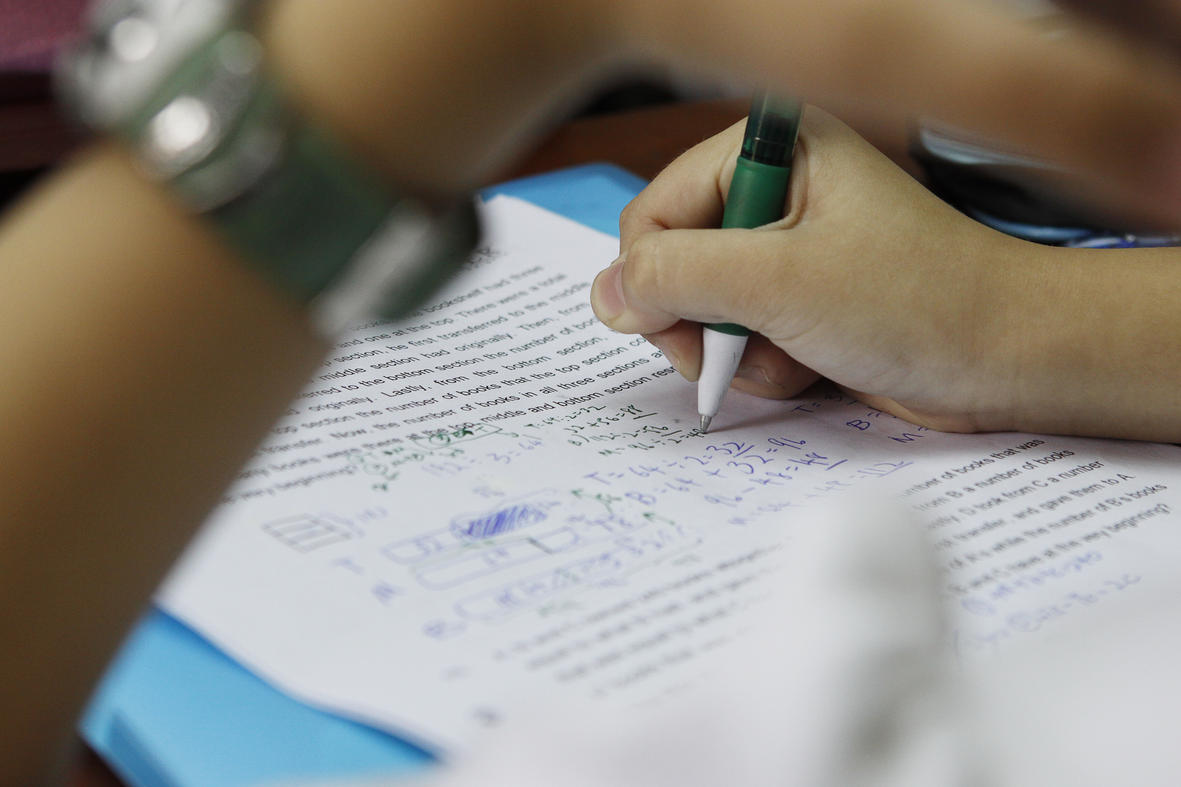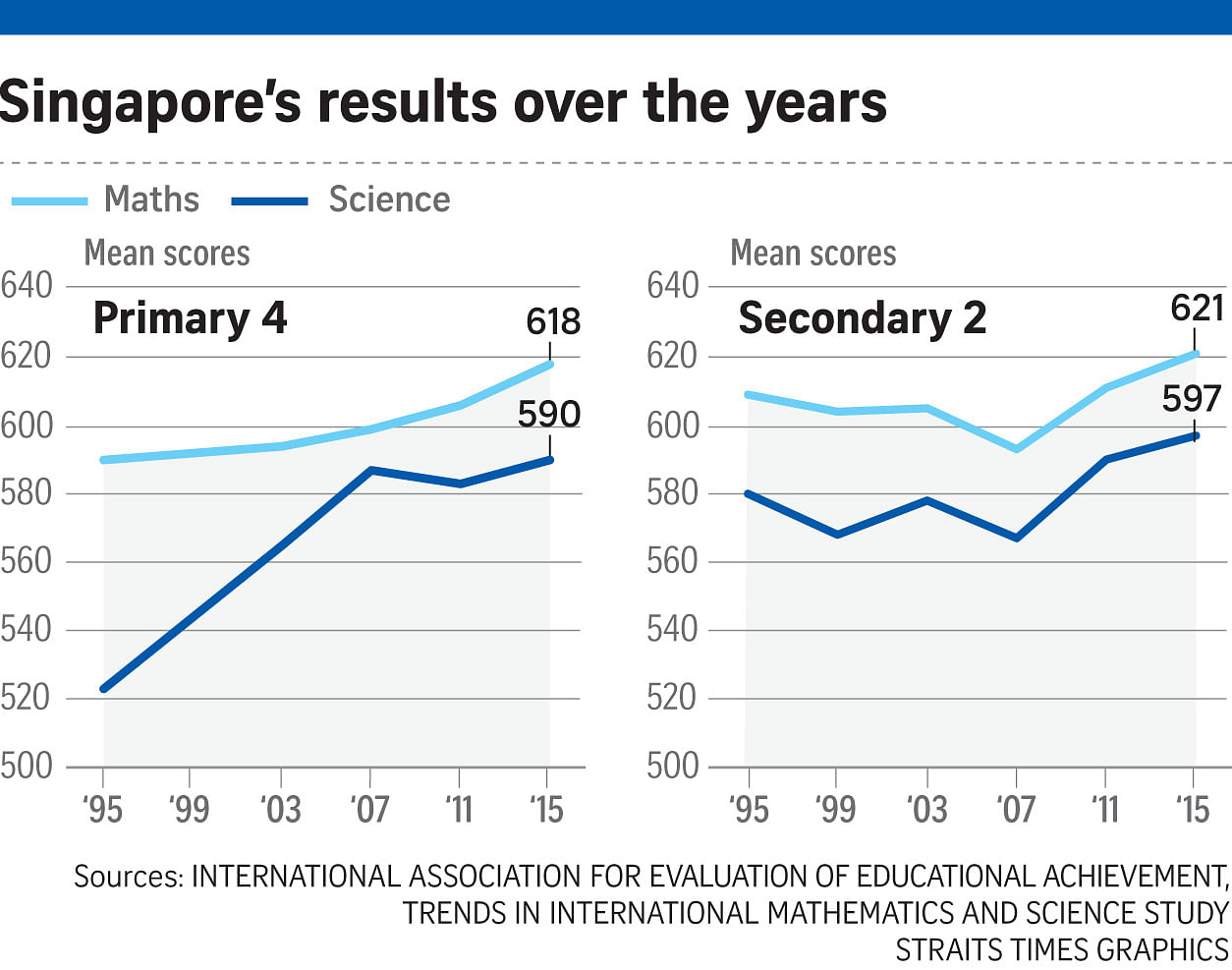Singapore students top maths, science rankings
Key global study also shows improvements in reasoning, applied learning and progress made by weaker students
Sign up now: Get tips on how to help your child succeed

Primary 4 pupils and Secondary 2 students here topped both subjects in the Trends in International Mathematics and Science Study.
PHOTO: ST FILE
Follow topic:
Students here have been ranked the world's best in mathematics and science by a key global study.
The Trends in International Mathematics and Science Study (TIMSS) also showed improvements by Singapore students in reasoning and applied learning, and progress made by weaker students.
The results, said the Education Ministry, show that moves to trim syllabuses in 1998 and 2003, and give more time to higher-order thinking skills are paying off. Programmes that cater to students' different learning needs are also bearing fruit, it said.
This is the second time that students here outdid those from all other countries across all four categories in TIMSS, which takes place every four years. The last time this happened was in 2003.
The latest test was conducted here in 2014.

A total of 12,600 Primary 4 and Secondary 2 students across all 179 primary schools and 167 secondary schools, and academic streams, were included in the sample. They were among over 582,000 students from 64 education systems tested.
Primary 4 pupils here had the highest mean score of 618 in maths, with those in Hong Kong coming in second with a score of 615. The same pupils also attained the best score of 590 in science, beating those in South Korea, which had 589.
Sec 2 students who sat the test were also ranked first with top scores of 621 and 597 for mathematics and science respectively, beating students in South Korea and Japan which came in second.
The proportion of students with the lowest score of below 400 was also much smaller than the international average. Just 1 per cent of Singapore students scored below 400 for Primary 4 maths, for instance. The global average was 7 per cent.
The test was administered by the International Association for the Evaluation of Educational Achievement, a non-profit research cooperative based in Amsterdam.
A further analysis of the scores showed that Singapore students are getting better in tackling non-routine questions and those requiring them to apply knowledge. For instance, Sec 2 students scored 616 in reasoning for maths, up from 589 scored by the 2007 batch.
Educators attributed these improvements to schools focusing more on inquiry-based teaching and learning over the last decade.
Dr Ridzuan Abd Rahim, a lead curriculum specialist in maths, said: "Today, you'll see in our maths classroom children talking and reasoning a lot more. They are asked to explain their statements and conclusions.
"When students speak up more, teachers can also see what level of understanding they are at."
Dr Chin Tan Ying, a lead curriculum specialist in science, noted that there has been a gradual shift towards encouraging students to "ask questions, collect evidence, explain things".
"This allows students to play a very active role in the learning process," she said, adding that there is also less need to memorise facts.
"Some of these facts can even be presented in exam questions, just like how you can Google for information these days... So, instead, we encourage students to think deeper based on the information given."

